Contribute a strong voice to build economic development policies
The final content in the solution section to build the private economic sector as the most important driving force of the national economy that Resolution 68 put forth is to create all favorable conditions for entrepreneurs to participate in national governance. In particular, the Politburo requires honoring, praising, and rewarding typical, advanced entrepreneurs and enterprises that operate effectively and sustainably, fulfill social responsibilities well, and actively participate in community activities. Mobilizing a team of excellent, dedicated, and visionary entrepreneurs to participate in national governance.
General Secretary To Lam met with a delegation of outstanding businessmen from the Vietnam Federation of Commerce and Industry and the Vietnam Association of Private Entrepreneurs on October 11, 2024.
PHOTO: VNA
Dr. Tran Quang Thang, Director of the Ho Chi Minh City Institute of Economics and Management, said that Resolution 68 of the Politburo marked an important shift in thinking about the private economy, when it first emphasized the role of entrepreneurs in national governance. This could have far-reaching impacts on the development of the private economic sector. Encouraging entrepreneurs to participate in national governance helps them have a stronger voice in economic policy making; creating motivation for private enterprises to invest in technology, innovation, improving labor productivity and competitiveness. With the direct participation of entrepreneurs, support policies for private enterprises can be designed to be more suitable to reality, helping to reduce legal and administrative barriers. From there, private enterprises can play the role of a pioneering force in international economic integration, participating in the global value chain. Moreover, the new policy can help Vietnam attract foreign investment, creating motivation for private enterprises to expand their scale and market.
"Entrepreneurs' participation in national governance helps strengthen cooperation between private enterprises and state agencies, creating a strong economic ecosystem. At the same time, it helps private enterprises have the opportunity to contribute to important policy decisions, promoting sustainable economic development. This new thinking can create a strong boost for the private economy, helping this sector develop faster, more sustainably and contribute more to the national economy," the expert emphasized.
Prime Minister Pham Minh Chinh met with Vietnamese businessmen attending the Government Standing Committee's meeting with businesses, February 10, 2025
PHOTO: VNA
Analyzing more clearly the requirement to mobilize a team of excellent, dedicated and visionary businessmen to participate in the country's governance, Mr. Tran Quang Thang pointed out that this content can be understood in two ways. The first is to involve businessmen in the policy-making process. The business force can play an important role in giving opinions and criticizing policies through business associations, economic forums, and official consultation mechanisms. This helps economic policies reflect reality and support sustainable business development. The second is that businessmen can cooperate with state agencies in economic management such as participating in advisory councils, policy research groups or public-private partnership programs to promote economic reform. This helps strengthen the connection between the private sector and the state, creating a more transparent and effective business environment.
"When entrepreneurs are recognized as an important force in national governance, they will have stronger motivation to invest in new fields, expand scale and improve the quality of products and services. Honest and timely policy criticism helps remove legal barriers, creating favorable conditions for business development. Mobilizing entrepreneurs to participate in national governance not only helps improve economic policies but also creates a dynamic business ecosystem, promoting creativity and innovation in the private sector," Dr. Tran Quang Thang affirmed.
The implementation of Resolution 68 is not only the responsibility of the Government, but also requires the initiative of enterprises and support from society. If implemented in the right direction, the private economic sector will become the most important driving force of the Vietnamese economy.
Dr. Tran Quang Thang, Director of Ho Chi Minh City Institute of Economics and Management
Improving national governance
In fact, the idea of bringing businessmen into the country's governance system has been tentatively proposed in recent times. Speaking at the discussion group on the draft Law on Cadres and Civil Servants (amended) on May 7, Chairman of the Hanoi People's Committee Tran Sy Thanh raised a questionable case about recruiting a private bank director to contribute to the state. Mr. Thanh said that according to current regulations, people aged 45 are not allowed to become civil servants. Therefore, wanting to recruit a private bank director or a scientist from a private research institute to help the state in areas they are good at, but cannot do so because of legal constraints.
Vietnamese businessmen are being given great opportunities to devote all their intelligence to bringing the country into a new era.
PHOTO: VNA
On the contrary, according to Mr. Tran Sy Thanh, there are state employees who work for private enterprises very well, because they understand state agencies so they can advise, consult, and help very effectively. "Why can't we get the private sector into the state? The Politburo and the Central Committee have mentioned this issue, and proposed to amend and supplement this regulation to make it reasonable for implementation, in order to grow and improve national governance. If there is no exchange and interaction between state and private sector officials and if they only struggle in the state civil service sector, officials cannot fully understand many issues such as business types, social, economic, and cultural operations...", the Chairman of the Hanoi People's Committee raised the issue.
Associate Professor Dr. Vo Dai Luoc, former Director of the Institute of World Economics, believes that Resolution 68 will form a basic foundation to resolve legal problems in attracting talents from the private sector to the state sector. According to him, up to now, the Government has always listened to opinions and suggestions from the business community, but mainly through industry associations or the national business representative organization, the Vietnam Chamber of Commerce and Industry (VCCI). Businesses are always encouraged to express their opinions and criticize policies anytime, anywhere. The Government and ministerial-level agencies also organize many direct meetings with the business community to listen to suggestions for policies and economic development issues. However, this is the first time this spirit and thinking has been directly included in a Party document, which clearly states the need to establish a close, substantive relationship between Party committees, authorities and businesses, with open and sincere sharing.
"This is in line with the guiding view that the private economy is the most important driving force of the national economy, which was mentioned from the beginning in Resolution 68. When considering the private economic force as an important and key driving force, we must listen to opinions and create conditions for businesses and entrepreneurs to participate more in the process of building documents and regulations. From there, we can improve national governance in a more practical, correct and accurate way. On the part of industry associations, we need to further promote the role of representing businesses, proactively contributing opinions in documents and implementing policies of state agencies. If this is not done well, it means that the associations have not fulfilled their roles, functions and tasks," Associate Professor, Dr. Vo Dai Luoc acknowledged.
Transforming the private sector from "recognized" to "led and inspired"
Assessing the overall breakthrough changes of Resolution 68, Dr. Do Thien Anh Tuan, Fulbright School of Public Policy and Management, affirmed that the resolution not only solves immediate problems in private economic development, but also has a long-term strategic vision, contributing to concretizing the country's major goal by 2045: becoming a developed country with high income, an independent, self-reliant economy and deep and effective integration.
In that context, the Resolution clearly identifies that the private economic sector will play a key role, as a pillar alongside the state economic sector to create a breakthrough in growth, productivity and national competitiveness. This is a strategic shift: instead of continuing to rely too much on public investment or foreign direct investment (FDI) as in previous development stages, Vietnam is proactively shifting to a development model based on internal strength and the private sector as the driving force.
This preparation is not only about policy, but also about institutions, infrastructure and human capacity - to ensure that Vietnamese private enterprises can rise to regional level, gradually participate and master global value chains, especially in industries with high added value, spillover effects and high technology content. Along with that, encouraging entrepreneurs to participate in national governance also demonstrates the determination to transform the private economic sector from "recognized" to "led and inspired". This represents a systemic change, linked to the national development strategy in the new period.
However, Dr. Do Thien Anh Tuan noted that the Resolution is just the beginning, the implementation is the deciding factor for success or failure. Many previous resolutions have also set out very progressive policies, but in the end, they fell into a situation of hot and cold at the top, good ideas but poor implementation. For Resolution 68 to truly come into life and create changes for the private sector, Mr. Do Thien Anh Tuan suggested focusing on a number of key points such as: Concretizing through a clear and transparent legal system and policies from amending laws on investment, land, bidding, credit to guiding decrees and circulars. Strongly reforming the implementation institution, overcoming the sluggish intermediary apparatus, where the top says but the bottom does not listen. The central government needs to have an independent and transparent monitoring mechanism for the implementation process, especially at local government levels.
In addition, the individual responsibility of the enforcement officers must also be clearly linked to the results of improving the business environment. Along with that, establish a dialogue and feedback mechanism from private enterprises, absolutely do not let private enterprises cry out in silence, or "beg" to survive. Improve support capacity, not only open the door but also lead the way.
"The most important thing is to persevere in implementation, not letting the Resolution fall into a peak period and then cool down. We see a common mistake of only focusing on implementing the Resolution in the first 1-2 years following the movement and then gradually letting it go. With Resolution 68, we need a long-term action program with specific measurable goals for each stage, and at the same time have a transparent reporting and monitoring regime to ensure that we do not "beat the drum and then abandon the drumstick", Dr. Do Thien Anh Tuan noted.
Sharing the same view, according to Dr. Tran Quang Thang, for Resolution 68 to be truly effective in promoting the private economy, there needs to be specific and drastic actions from the Government, enterprises and society. In addition to the solutions that have been clearly stated, it is necessary to strengthen the connection between private enterprises and the State to develop large projects. In addition, perfecting the credit guarantee fund model to help small and medium enterprises access capital more easily; supporting enterprises in applying technology in management and production, improving competitiveness; allowing controlled experiments to promote innovation without worrying about legal risks; creating motivation for private enterprises to expand their scale and reach out to international markets...
"Implementing Resolution 68 is not only the responsibility of the Government, but also requires initiative from businesses and support from society. If implemented in the right direction, the private economic sector will become the most important driving force of the Vietnamese economy," Dr. Tran Quang Thang added.
Objectives of Resolution 68
By 2030
- The private economy is the most important driving force of the national economy; a pioneering force in science and technology development, innovation and digital transformation, contributing to the successful implementation of the goals of Resolution No. 57-NQ/TW dated December 22, 2024 of the Politburo and other policies and guidelines of the Party.
- Strive to have 2 million enterprises operating in the economy, 20 enterprises operating/1,000 people. Have at least 20 large enterprises participating in the global value chain.
- The average growth rate of the private economy is about 10 - 12%/year, higher than the growth rate of the economy; contributing about 55 - 58% of GDP, about 35 - 40% of total state budget revenue, creating jobs for about 84 - 85% of the total workforce; labor productivity increases on average about 8.5 - 9.5%/year.
- Technological level, capacity, innovation, and digital transformation are among the top 3 countries in ASEAN and the top 5 countries in Asia.
Vision to 2045
Vietnam's private economy develops rapidly, strongly, sustainably, proactively participates in the global production and supply chain; has high competitiveness in the region and internationally; strives to have at least 3 million enterprises operating in the economy by 2045; contributing about over 60% of GDP.
Building separate laws for Vietnamese private enterprises
To properly implement the spirit and innovative thinking of Resolution 68 and promote private economic development, Associate Professor, Dr. Vo Dai Luoc proposed to build a private enterprise law and this law is only for Vietnamese enterprises. In particular, concretize the ideas and solutions from Resolution 68. Domestic private enterprises need to be given equal priority to FDI enterprises and even more incentives. From there, we can truly create conditions and promote the private economic sector to be creative, innovative and develop strongly. To build laws quickly and put them into practice, there must be choices. Singapore with its institutions and regulations that create many favorable conditions for enterprise development is a model for Vietnam to consider and refer to when building laws for private enterprises.
Thanhnien.vn
Source: https://thanhnien.vn/doanh-nhan-se-cung-xay-dung-dat-nuoc-hung-cuong-185250510221953414.htm


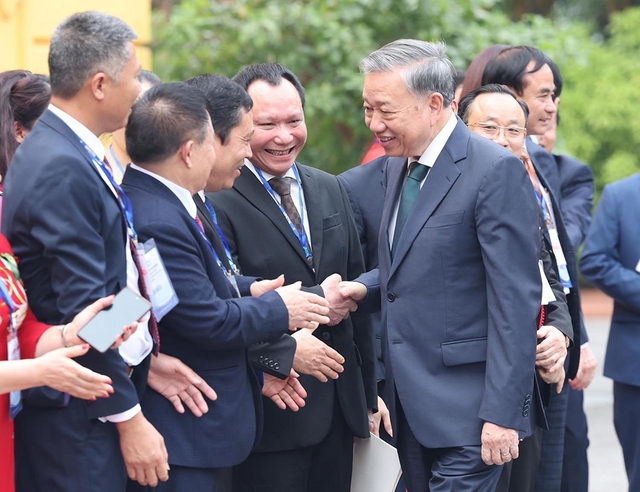
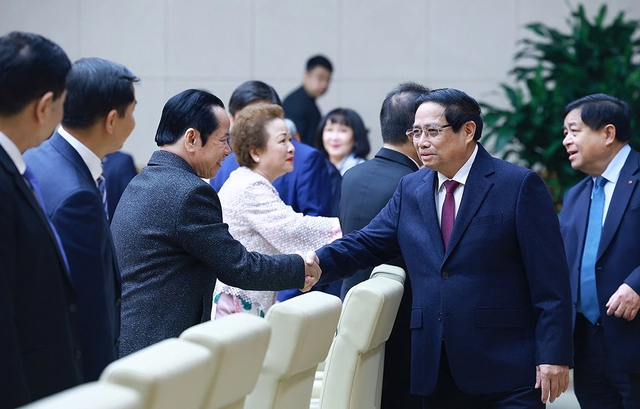
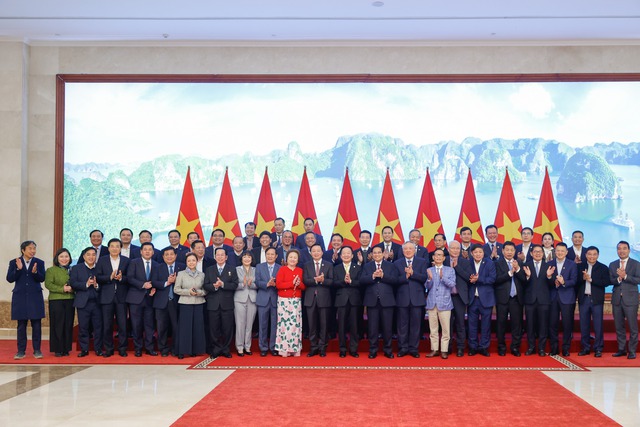

![[Photo] Students of Binh Minh Primary School enjoy the full moon festival, receiving the joys of childhood](https://vphoto.vietnam.vn/thumb/1200x675/vietnam/resource/IMAGE/2025/10/3/8cf8abef22fe4471be400a818912cb85)



![[Photo] Prime Minister Pham Minh Chinh chairs meeting to deploy overcoming consequences of storm No. 10](https://vphoto.vietnam.vn/thumb/1200x675/vietnam/resource/IMAGE/2025/10/3/544f420dcc844463898fcbef46247d16)








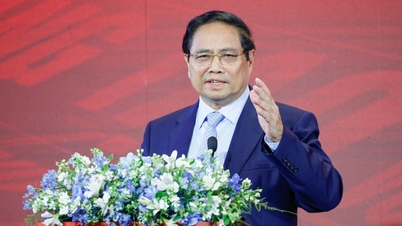



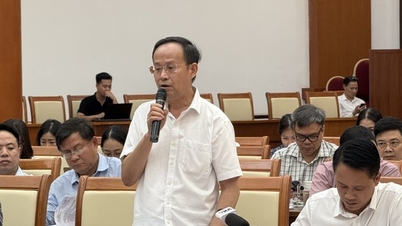




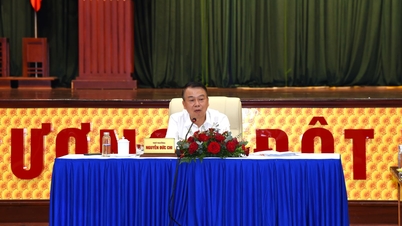

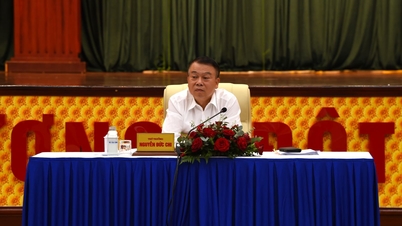







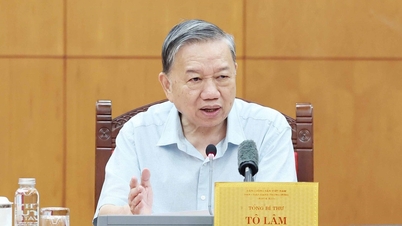























































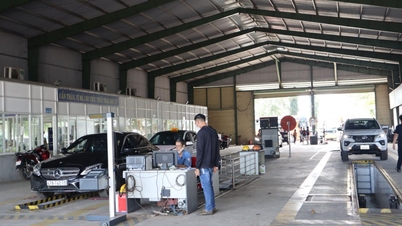













Comment (0)